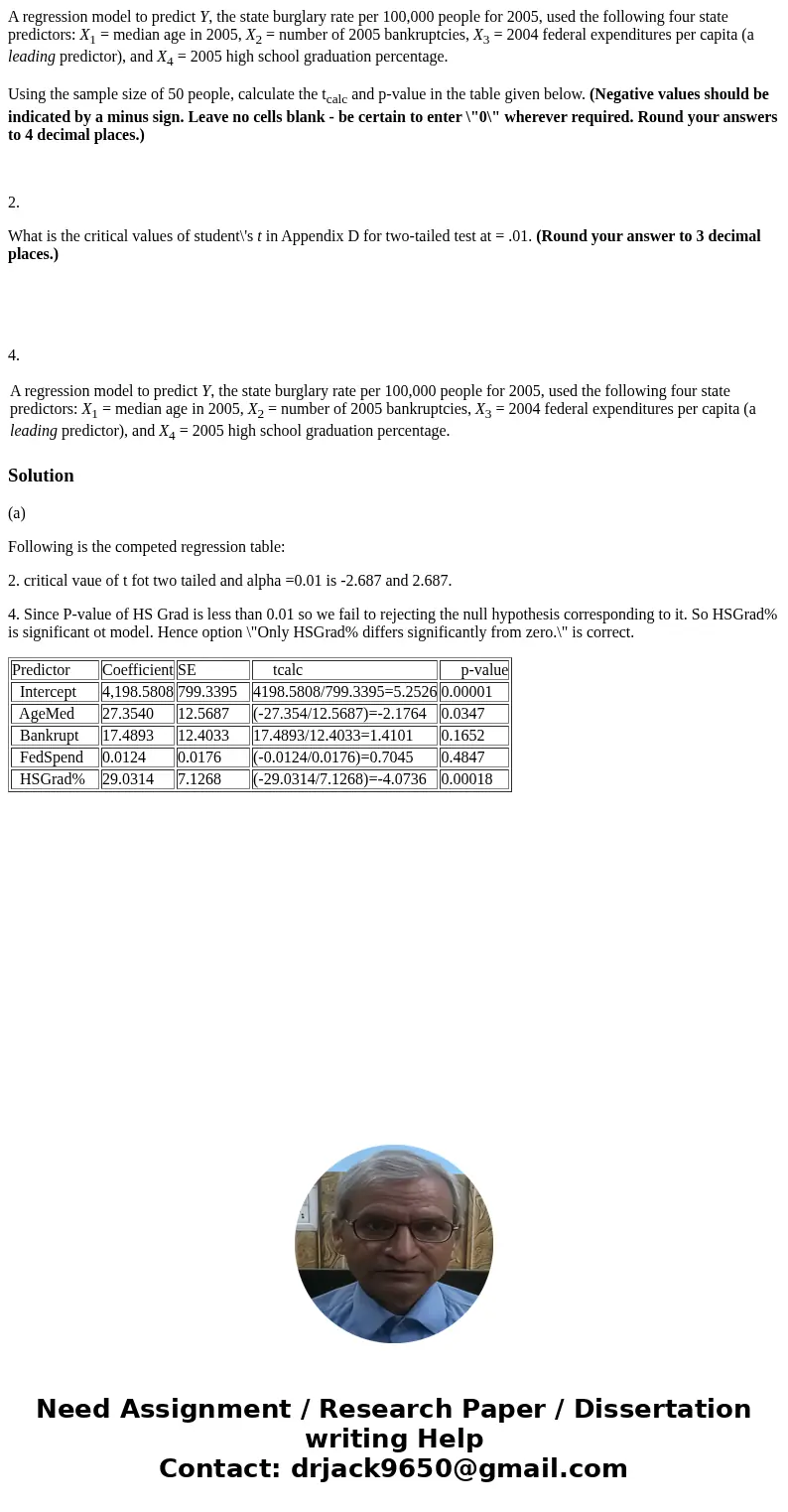A regression model to predict Y the state burglary rate per
A regression model to predict Y, the state burglary rate per 100,000 people for 2005, used the following four state predictors: X1 = median age in 2005, X2 = number of 2005 bankruptcies, X3 = 2004 federal expenditures per capita (a leading predictor), and X4 = 2005 high school graduation percentage.
Using the sample size of 50 people, calculate the tcalc and p-value in the table given below. (Negative values should be indicated by a minus sign. Leave no cells blank - be certain to enter \"0\" wherever required. Round your answers to 4 decimal places.)
2.
What is the critical values of student\'s t in Appendix D for two-tailed test at = .01. (Round your answer to 3 decimal places.)
4.
| A regression model to predict Y, the state burglary rate per 100,000 people for 2005, used the following four state predictors: X1 = median age in 2005, X2 = number of 2005 bankruptcies, X3 = 2004 federal expenditures per capita (a leading predictor), and X4 = 2005 high school graduation percentage. |
Solution
(a)
Following is the competed regression table:
2. critical vaue of t fot two tailed and alpha =0.01 is -2.687 and 2.687.
4. Since P-value of HS Grad is less than 0.01 so we fail to rejecting the null hypothesis corresponding to it. So HSGrad% is significant ot model. Hence option \"Only HSGrad% differs significantly from zero.\" is correct.
| Predictor | Coefficient | SE | tcalc | p-value |
| Intercept | 4,198.5808 | 799.3395 | 4198.5808/799.3395=5.2526 | 0.00001 |
| AgeMed | 27.3540 | 12.5687 | (-27.354/12.5687)=-2.1764 | 0.0347 |
| Bankrupt | 17.4893 | 12.4033 | 17.4893/12.4033=1.4101 | 0.1652 |
| FedSpend | 0.0124 | 0.0176 | (-0.0124/0.0176)=0.7045 | 0.4847 |
| HSGrad% | 29.0314 | 7.1268 | (-29.0314/7.1268)=-4.0736 | 0.00018 |

 Homework Sourse
Homework Sourse